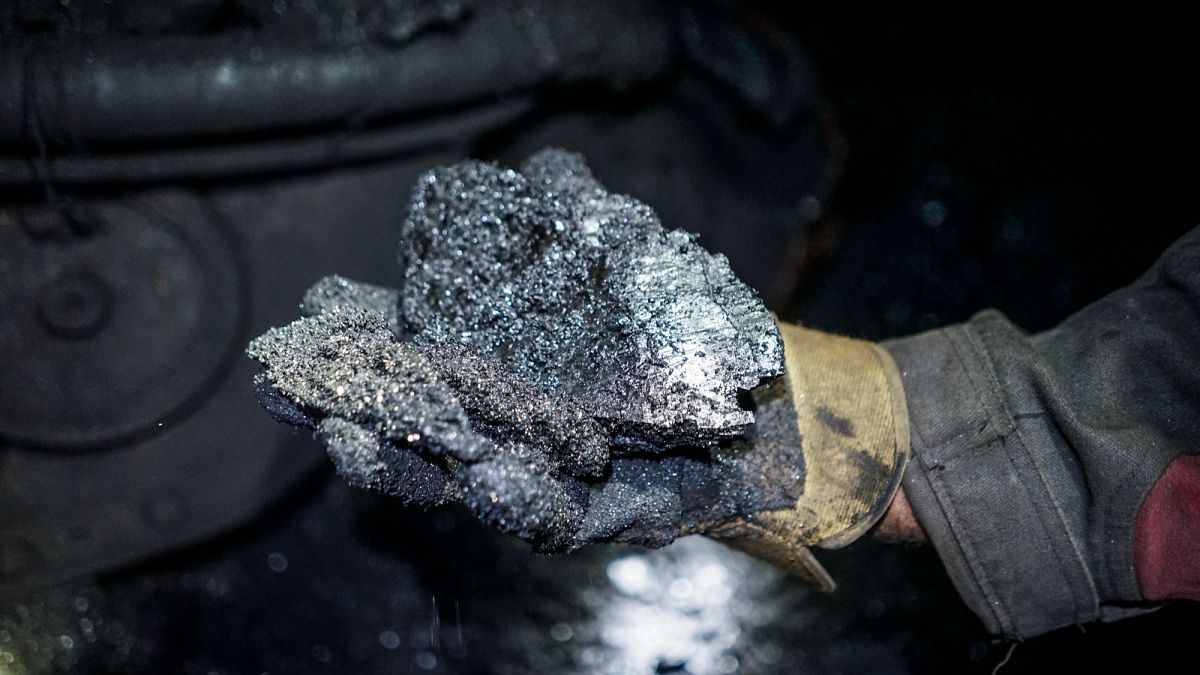Our international correspondent Valerie Gauriat travelled to south-eastern Ukraine to meet the women who have recently joined the efforts to secure critical energy supply — in the coal mines.
Ternivka, at the heart of Ukraine’s massive coal mining basin in western Donbas, is crucial for the country’s energy supply and a potential target for Russian forces.
The area’s oldest coal mine is still operating in full swing, and with the help of an increasing number of women, more and more men are being mobilised.
Oksana is among those holding the country’s energy frontline:
“I try to help both myself and the country. This job is … tough but it’s possible. I’m managing it. I can manage anything,” she told Euronews.
Oksana fled her hometown of Bakhmut in the Donetsk region, under heavy Russian shelling. Her father and her eldest son were killed in the bombings.
Many women here were displaced by the war, losing their homes and former jobs. Tatyana used to be a nanny. Irina was an accountant. Their job at the mine ensures their livelihood.
But it’s also a way for them to take part in the war effort, as Irina explains.
“It is probably very important for everyone today to do something, as importantly as I can help. You have to do more than just sit back. And this is my contribution to the stability of our economy and our country.”
Before the war, women were prohibited from working underground in Ukrainian mines under a law going back to Soviet times. They now account for about 5% of the underground workforce in this mine. A welcome presence says Irina’s husband, Andrey, who has worked here for many years:
“In some fields, women actually perform better than men. It’s pleasant and reassuring to know that she’s close to me, she’s under my watch. The anxiety is always here. While we are underground, you never know what’s happening on the surface,” Irina told Euronews.
“No matter what happens, in any situation, we are a support for each other. So I feel comfortable here.”
The western Donbas mines represent 80% of the country’s coal production. Their capture or destruction would mean critical power cuts throughout the country.
Watch the report by Euronews’ international correspondent Valerie Gauriat in the player above.



